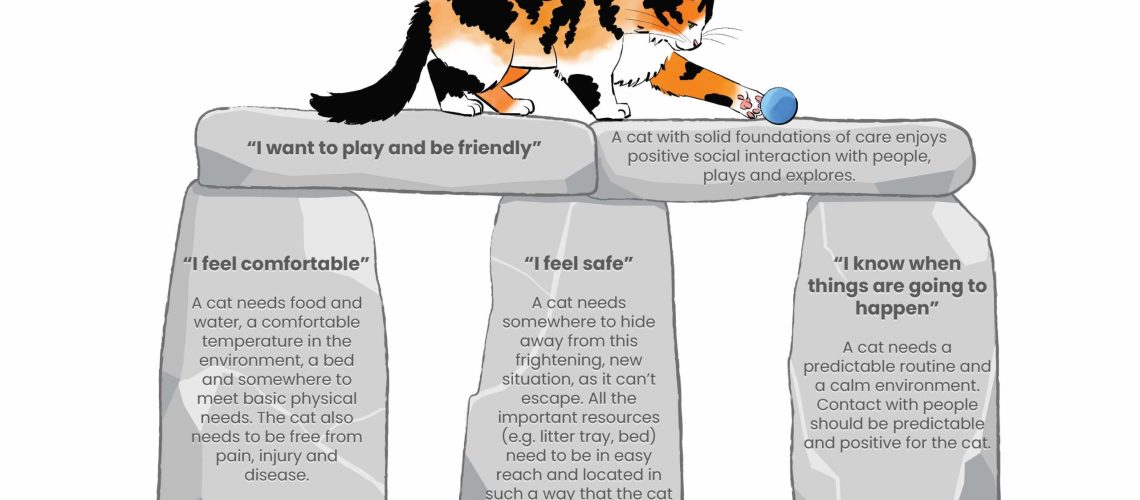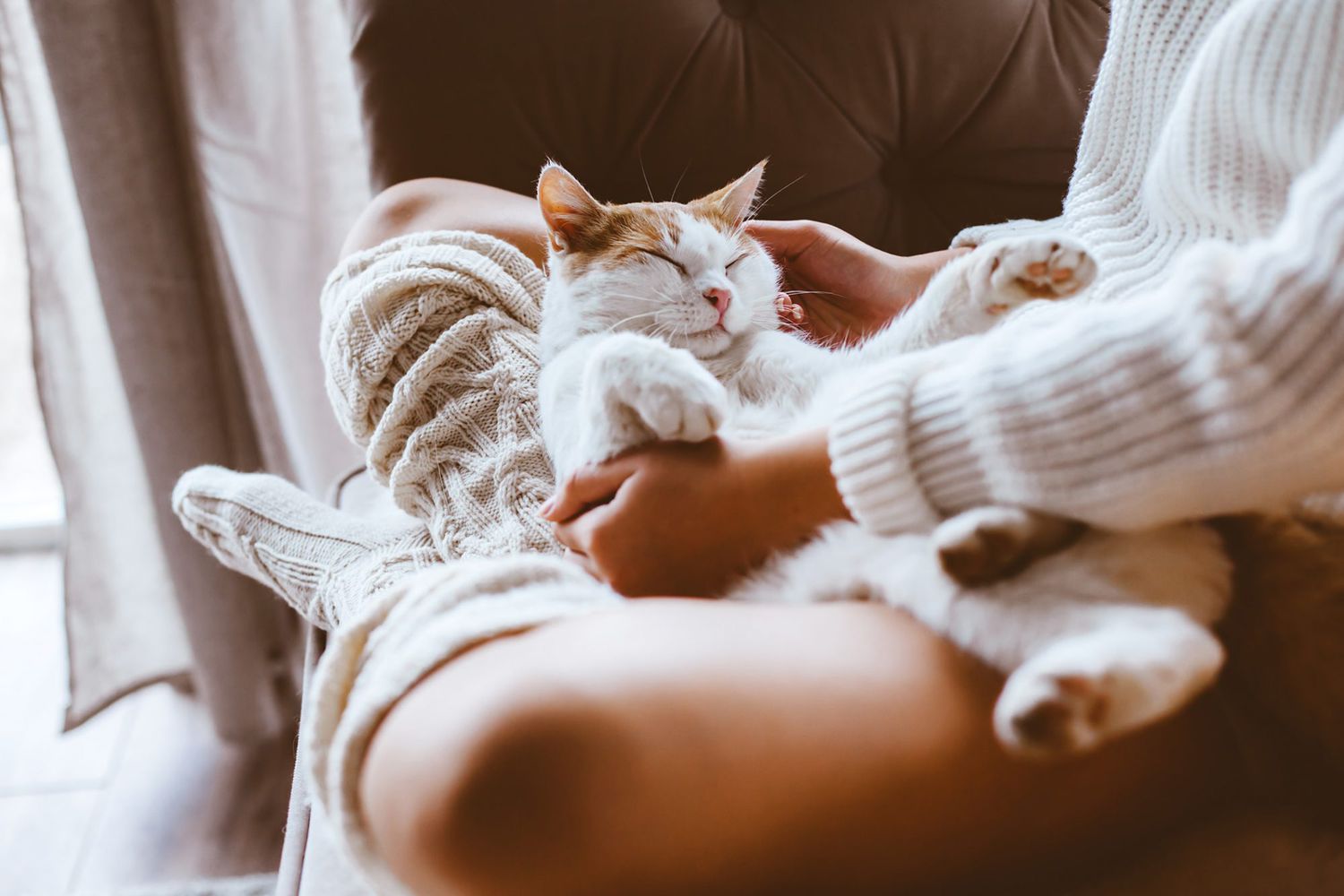Do you ever wonder what your furry feline friend is trying to tell you? Or why they sometimes act a little off? Understanding Your Cat's Health: The Basics is your key to unlocking the secrets behind your cat's well-being. By delving into this subject, you'll gain valuable insights that can help you keep your beloved pet happy and healthy. Whether it's deciphering their body language or recognizing potential health issues, this guide will equip you with the knowledge you need to become a cat whisperer. With clear and simple explanations, we'll explore everything from common ailments to preventative care, ensuring that you have all the tools necessary to provide the best possible care for your four-legged companion. So get ready to embark on a journey of discovery and deepen the bond between you and your purring pal. It's time to decode the mysteries of your cat's health!
Key Takeaways:
- Regular veterinary check-ups are essential for maintaining your cat's health and catching any potential issues early on.
- Proper nutrition is crucial for a cat's overall well-being, so ensure you provide a balanced diet appropriate for their age and specific needs.
- Cats require regular exercise to maintain a healthy weight and prevent obesity-related health problems.
- Monitoring your cat's litter box habits can help detect urinary or digestive issues early, allowing for prompt treatment.
- Keeping up with vaccinations and preventative measures, such as flea and tick control, is important in safeguarding your cat against common diseases.
Signs that Your Cat Might Not Be Feeling Well
If you're a cat owner, it's important to keep an eye out for signs that your furry friend might not be feeling well. Cats are masters at hiding their illnesses, so it's crucial to pay attention to any changes in their behavior or appearance. Some common signs that your cat might not be feeling well include:
- Lack of appetite or sudden weight loss
- Excessive grooming or hair loss
- Lethargy or decreased activity level
- Changes in litter box habits (such as urinating outside the box)
- Vomiting or diarrhea
- Sneezing, coughing, or difficulty breathing
If you notice any of these signs in your cat, it's important to consult with a veterinarian. They can help determine the underlying cause and provide appropriate treatment. Remember, early detection and intervention can greatly improve your cat's chances of recovery.
How Often to Take Your Cat to the Veterinarian for a Check-Up
Taking your cat to the veterinarian for regular check-ups is essential for maintaining their overall health and well-being. The frequency of these visits will depend on several factors, including your cat's age and any pre-existing medical conditions they may have.
As a general guideline, adult cats should visit the veterinarian at least once a year for a comprehensive examination. During these check-ups, the veterinarian will assess your cat's weight, dental health, heart and lung function, and overall body condition. They may also recommend vaccinations or preventive treatments for parasites like fleas and ticks.
Kittens and senior cats require more frequent visits. Kittens need multiple visits during their first year for vaccinations and to monitor their growth and development. Senior cats, on the other hand, may require more frequent check-ups to manage age-related conditions such as arthritis or kidney disease.
Remember, regular veterinary check-ups are crucial for detecting any underlying health issues early on and ensuring your cat receives appropriate care. Your veterinarian can provide personalized recommendations based on your cat's specific needs.
Common Health Issues in Cats
Cats can experience a variety of health issues throughout their lives. While it's impossible to predict every ailment your cat may encounter, being aware of common health problems can help you recognize symptoms and seek prompt veterinary care.
Dental Disease:
Poor dental hygiene can lead to gum disease, tooth decay, and painful oral infections in cats. Regular brushing and dental cleanings by a veterinarian can help prevent these issues.
Urinary Tract Infections:
Cats, especially males, are prone to urinary tract infections. Symptoms include frequent urination, straining to urinate, blood in the urine, and excessive grooming of the genital area.
Obesity:
Overweight cats are at risk for various health problems such as diabetes, joint pain, and heart disease. Maintaining a healthy weight through portion control and regular exercise is crucial for preventing obesity.
Fleas and Ticks:
Fleas and ticks not only cause discomfort but can also transmit diseases to cats. Regular use of flea and tick preventatives is essential for protecting your cat from these parasites.
Kidney Disease:
Kidney disease is common in older cats. Symptoms include increased thirst, frequent urination, weight loss, and decreased appetite. Early detection and management can help slow the progression of the disease.
Remember, if you notice any unusual symptoms or behavior in your cat, it's best to consult with a veterinarian for proper diagnosis and treatment.
The Importance of a Balanced Diet for Your Cat's Health
A balanced diet is crucial for maintaining your cat's overall health and well-being. Cats have unique nutritional needs that must be met through their diet to ensure they receive all the necessary nutrients.
A balanced cat diet should consist of:
- High-quality protein: Cats are obligate carnivores, meaning they require meat-based protein in their diet. Look for cat foods that list a high-quality source of animal protein (such as chicken or fish) as the main ingredient.
- Essential fatty acids: Omega-3 and omega-6 fatty acids are important for promoting healthy skin, coat, and immune system function. These can be found in fish oil or added to commercial cat foods.
- Vitamins and minerals: Cats need a variety of vitamins and minerals for optimal health. Commercial cat foods formulated by reputable brands generally contain these essential nutrients in appropriate amounts.
- Water: Adequate hydration is vital for cats' overall health. Ensure fresh water is always available for your cat to drink.
Avoid feeding your cat an exclusively homemade or raw food diet without consulting with a veterinarian first. These diets can be nutritionally imbalanced and may not meet your cat's specific dietary requirements.
Remember, providing your cat with a balanced diet promotes good health, supports their immune system, and helps prevent nutrition-related diseases.
Preventing Fleas and Ticks from Affecting Your Cat's Health
Fleas and ticks are common parasites that can cause discomfort and health problems for your cat. Preventing these pests from affecting your cat is crucial for their well-being.
Here are some preventive measures you can take:
- Use flea and tick preventatives: Consult with your veterinarian to choose the most suitable flea and tick preventive products for your cat. These treatments come in various forms, including topical solutions, collars, or oral medications.
- Maintain a clean environment: Regularly vacuuming your home and washing your cat's bedding can help remove any fleas or ticks that may be present.
- Avoid high-risk areas: If possible, prevent your cat from entering areas where fleas and ticks are commonly found, such as tall grassy fields or wooded areas.
- Check for parasites regularly: Routinely inspect your cat's fur and skin for signs of fleas or ticks. Look for tiny black dots (flea dirt) or small crawling insects.
If you notice any fleas or ticks on your cat, consult with a veterinarian for appropriate treatment options. Remember, prevention is key to keeping your cat free from these pesky parasites.
Necessary Vaccinations to Protect Your Cat Against Diseases
Vaccinations play a crucial role in protecting your cat against various infectious diseases. Vaccines stimulate the immune system to produce protective antibodies, helping prevent serious illnesses.
Some essential vaccinations for cats include:
- Rabies vaccine: Rabies is a fatal viral disease that can affect both cats and humans. Vaccinating your cat against rabies is not only important for their health but also required by law in many regions.
- Feline viral rhinotracheitis, calicivirus, and panleukopenia (FVRCP) vaccine: This combination vaccine protects against three common respiratory and gastrointestinal viruses in cats.
- Feline leukemia virus (FeLV) vaccine: FeLV is a contagious disease that can lead to various health problems, including cancer. Vaccinating your cat against FeLV is recommended, especially if they go outdoors or interact with other cats.
It's important to consult with a veterinarian to determine the appropriate vaccination schedule for your cat based on their lifestyle and risk factors. Vaccinations are typically administered during kittenhood and require periodic boosters throughout your cat's life.
The Importance of Regular Grooming for Your Cat's Health
Grooming plays a vital role in maintaining your cat's overall health and well-being. Regular grooming sessions help keep their coat clean, reduce shedding, prevent matting, and allow you to monitor their skin for any abnormalities.
Here are some aspects of regular grooming:
- Brushing: Brushing your cat's fur helps remove loose hair, prevents matting, and stimulates blood circulation. It also reduces the likelihood of hairballs forming in their digestive system.
- Nail trimming: Trimming your cat's nails regularly keeps them at an appropriate length and prevents them from becoming too sharp or causing injury. Use specialized nail clippers designed for cats.
- Ear cleaning: Cats' ears should be checked regularly for signs of dirt or wax buildup. Clean them gently using a veterinarian-recommended ear cleaner and cotton balls or pads.
- Dental care: Dental hygiene is essential for preventing dental disease in cats. Brush your cat's teeth regularly using a pet-safe toothbrush and toothpaste specifically formulated for cats.
If your cat is not accustomed to grooming, introduce these activities gradually and provide positive reinforcement to make the experience more enjoyable for them.
Remember, regular grooming sessions not only keep your cat looking their best but also contribute to their overall health and well-being.
In conclusion, it is important to understand your cat's health basics to ensure they stay happy and healthy. Regular check-ups, proper nutrition, and keeping an eye out for any changes in behavior or appearance are key to taking care of your furry friend.
What is the rule of 3 for cats?
It is important to understand that your cat will need time to adjust to their new surroundings and routine. The 'Rule of Three' suggests that it may take approximately three days, three weeks, or even three months for your cat to fully adapt to their new home.
How can I better understand my cat?
Cats may not have the same expressive faces as dogs and tend to be quieter, making their behaviors more difficult to interpret. However, this doesn't mean that understanding cats is impossible. By observing their vocalizations, body language, and daily habits, you can gain a better understanding of your feline companion.
What does it mean when your cat sleeps next to you?
Cats feel more secure when they sleep next to their owner because they know they have an additional layer of protection in case of any potential threats. This is particularly significant for cats during nighttime when it's dark, which is why you might wake up to find your cat cuddled up against you.
What is a cats daily routine?
A typical daily routine for cats involves following their natural predator instincts, which include staring, stalking, chasing, and finally capturing their prey. This is then followed by a meal and the cat going through the sequence of hunting, eating, grooming, and sleeping. Additionally, regular cleaning of the litter box is necessary.
How long can you leave a cat alone?
An adult cat in good health can be left alone for a day, but it is not safe to leave a kitten alone for a long time. Our recommendation is that kittens between one and three months old should not be left alone for more than four hours at a time. As they get older, a five-month-old kitten can be left alone for a slightly longer period, and a six-month-old kitten can be left alone for the duration of a workday.
What is the rule 12 cat?
If you come across a cat on the street, make sure to take a moment to pet it. Pay attention to all the positive things, both big and small, in a world where negative events can sometimes feel overwhelming.

















